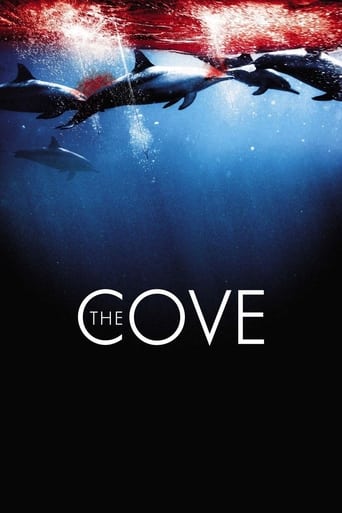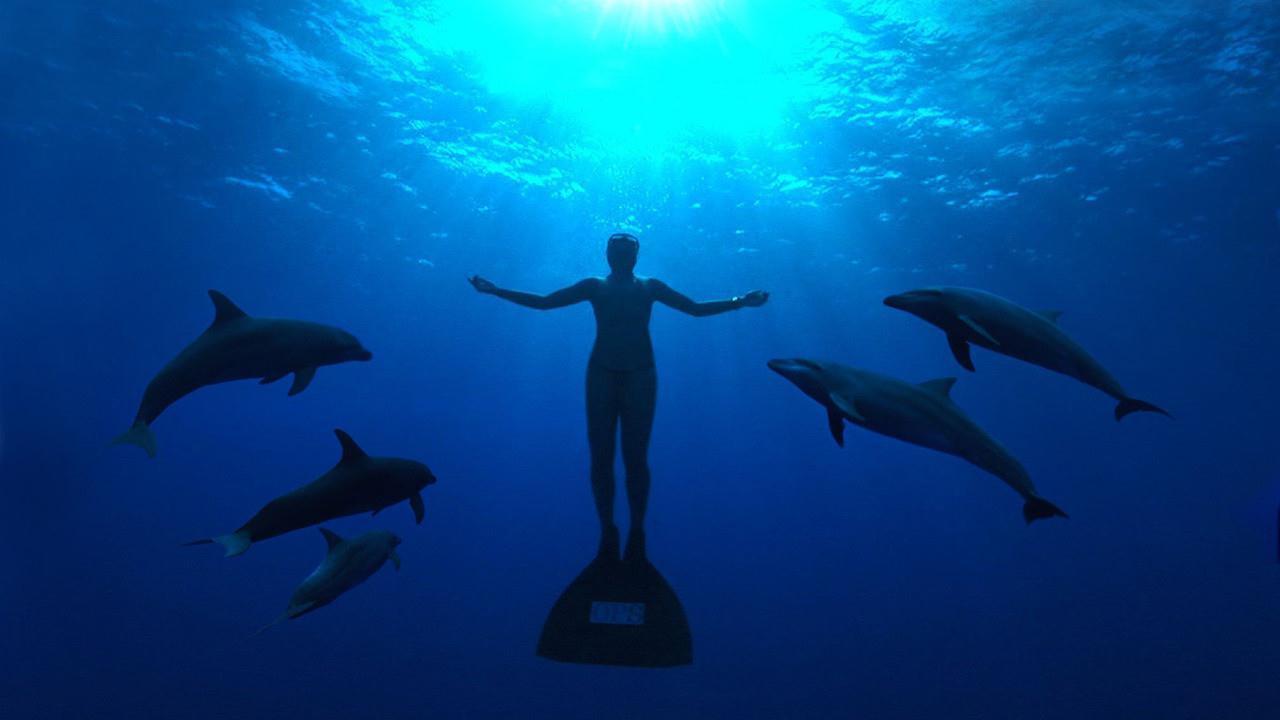e-70733
It is a paradox to present facts in a subjective way, unless the standpoint of the film is not to show the facts. The essence of both salvation and killing is a continuation of human self-identification.
Therefore, I do not believe that what is concealed in sorrow, how much is the human savior-like vanity. Of course, this film records the dangers and costs of the crew. However, almost all the madness begins with the obsession with attitude and giving.
ratiryo
Why we can eat cows,pigs and chicken ,even in south east Asia people dogs , this movie is just make Japanese people make so bad. And they just a propaganda for people never seen the slaughterhouse I guess
smarliechen
this is what I wrote to a friend to discuss about The Cove:honestly speaking, I can't say I'm that into The Cove. don't get me wrong, it's a well-made documentary. The way it reveals the story, successfully creates suspension is quite articulate. It also reminds me how important it is to tell your story the way the audience would be interested in.What they are trying to address and their love and dedication towards dolphin/whales is very clear to me. Moreover, It's a project which is very hard to accomplish because of all the pressure from the Japan government,authorities and local fishermen...etc.On a certain level I do agree with them, such as I'm against cruelty, we human do consume too much seafood and that should be controlled. But this is rather a globe issue and the responsibilities are not on Japan (where the captivation is done) only. As long as there is a market, there will be some places more or less like Taiji, in Japan or other countries; there will be governments who deceive and bribe for the best of their own economic interests, US government is no better than that.I also feel like it loses its focus from time to time, some parts seems more like a documentary about "how difficult we get the shooting done at the cove in Taiji" to me, because there is long duration falls on how risky it is to make this film happened; some parts are somewhat vague and a little confusing as well. (ex, the way they tried to prove it's not a culture to eat the dolphin/whale in Japan is to throw questions to people on the street, that's not a legitimate approach for a fair report, especially when you're not familiar with the culture. The director point out that there are lots of people have been mercury poisoned because they eat dolphin/whale, which raises the question of whether it is a culture because apparently that means people do consume dolphin/whale meat a lot)the director also suggests that we shouldn't eat the dolphin because it's a highly intelligence creature with self-awareness, I'm not sure I'm totally buying that. It's not like I don't agree with this opinion (save the dolphin), but more about I'm not very fond of the idea that the creature's life worth more if they are more intelligence. I can't say I see every living creatures as totally equal (killing roaches sure is easier for me than killing mammals) but I couldn't help but thinking that human are for sure the most intelligent species on the planet but as well as the most harmful one when it comes to the well-being of the whole eco-system.This is a example of how a film with good story-telling and well execution could successfully manipulate people's awareness and attitude toward the topic although it's undeniable one-sided and bias.
ironhorse_iv
The Cove is a call to action movie about Japan's dolphin fishing culture asking for a halt to mass dolphin murdering use for food. The film tries to show light of Japanese brutal fishing practices, and to inform and educate the public about the risks, and increasing hazard, of mercury poisoning from dolphin meat. The movie produces by Americans fail to do one thing: get the Japanese people involve! The movie is full of Japanese bashing, and there is little room to bring them onboard. The film wasn't even for a Japanese audience, but western culture! If there is something that is view to be wrong in Japan, wouldn't you at less, try to bring in the Japanese people into the cause?? The film seem to be a what western deem wrong of eastern cultures without giving proper notice on why they kill dolphins. The film just kinda hint at it, but the reason why people in Japan have eaten dolphins and whales is because such sea mammals have been source of protein easily-available due to the lack of Japan landmass. Japanse people go out to the sea to secure source of protein. The film likes to show the affect of mercury poisoning, but majority of Japanese people are pretty healthy compare to United States high obesity levels. While eating dolphin is a Taiji fisherman tradition, it's no different between regional variations in custom, language or diet in US where people eat alligators, horses, and deer game. Fishes here have high mercury levels here too, plus TNT. I believe this documentary should have been made by the Japanese people like how 'Food Inc' ( anti-food companies documentary) was made in the US to show, how nation like US giving priority to special interests over citizens' health, buying votes at international organizations like the UN, using state powers to cover-up embarrassing issues, and have irrational policies in it's farming and ranching ways. All similar to the issues address in this documentary about Japanese fishing. Rather than Japanese bashing Japanese fishing, it's Western culture bashing how they eat. How would it be like if Hinduism film US slaughterhouse? The Japanese people are made out to look bad, and negative light in this film. The film is told through an ocean conservationist's point of view, Ric O'Barry whom in the 1960's help capture and train dolphins for the role of 'Flipper'. He became activist when his lead Flipper, 'Cathy' in his mind commit suicide by shutting off her blow hole voluntarily in order to suffocate for reasons due to her captivity. Is there any hard evidence of dolphin suicide? No. Tantalizing information that yet have proved to be a fact. He spent the world, helping dolphins. Ric O'Barry and a A-Team of Mission Impossible film activists come to bizarro land where the town people adoration dolphins to uncover the truth. Why because Ric O' Barry has it against the Japaneses, he like mocking them in some scenes, because for the Taiji's Cove is the Auschwitz for dolphins. Taiji kills dolphins with spears in unnecessary and cruel ways. Yes, that's truly sad. The film states that the dolphin hunt is, in large part, motivated by the tremendous revenue generated for the town by selling some of the captured dolphins to aquariums and marine parks. The dolphins that are not sold into captivity are then slaughtered in the cove and the meat is sold in supermarkets. It's sounds like the Japanese isn't the one in fault here. Are we evil cause we love Flippers as a child? I guess-- Flipper and every dolphin fans are, since the show fueled widespread public adoration of dolphins, influencing the development of marine parks that included dolphins in their attractions. While the film loves to talk about how bad it is to keep dolphins in captivity. Some marine parks, like Sea World, are nothing short of essential. Their main function is conservation. Without captive breeding, many endangered species would now be extinct. To say that, all dolphins shouldn't be in captivity isn't true. I saw the bashing of Sea World, really unfair. It's really sad that dolphins get kill in Taiji, but indeed it's well-told issue that need to come into light, and I for one appreciate the risks taken by the film makers in attempting to get this story out. It work and dolphins/whales hunting has decrease since 2009, but the overused of Japan when Norway and Denmark kills as much as Japan is chilling to the point that the documentary might be a propaganda film against eastern cultures full of conspiracy theorists and nation character assassination for the gullible. The producers did little to fight for more screening in Japan when it came out and cause if it was going to be solve, it should come from the Japanese people, not international heat. It's a shame. Hypocrisy is full in this film.


 AD
AD




